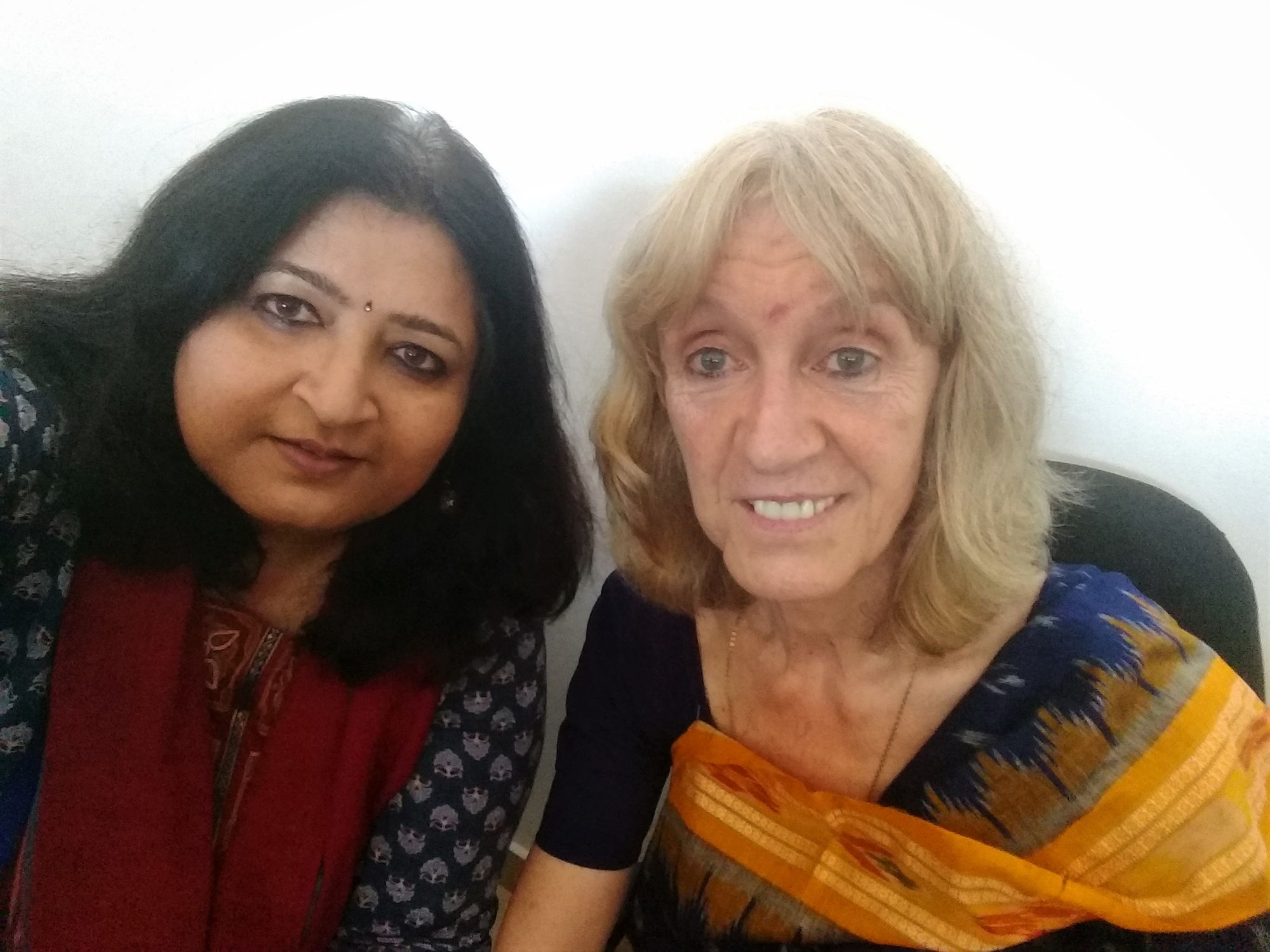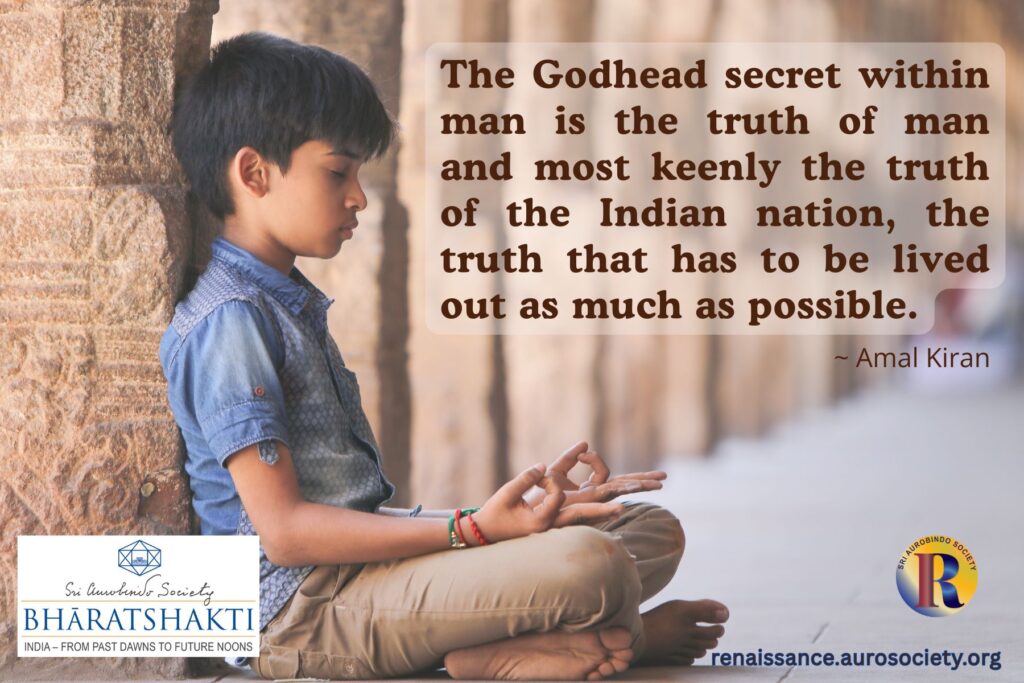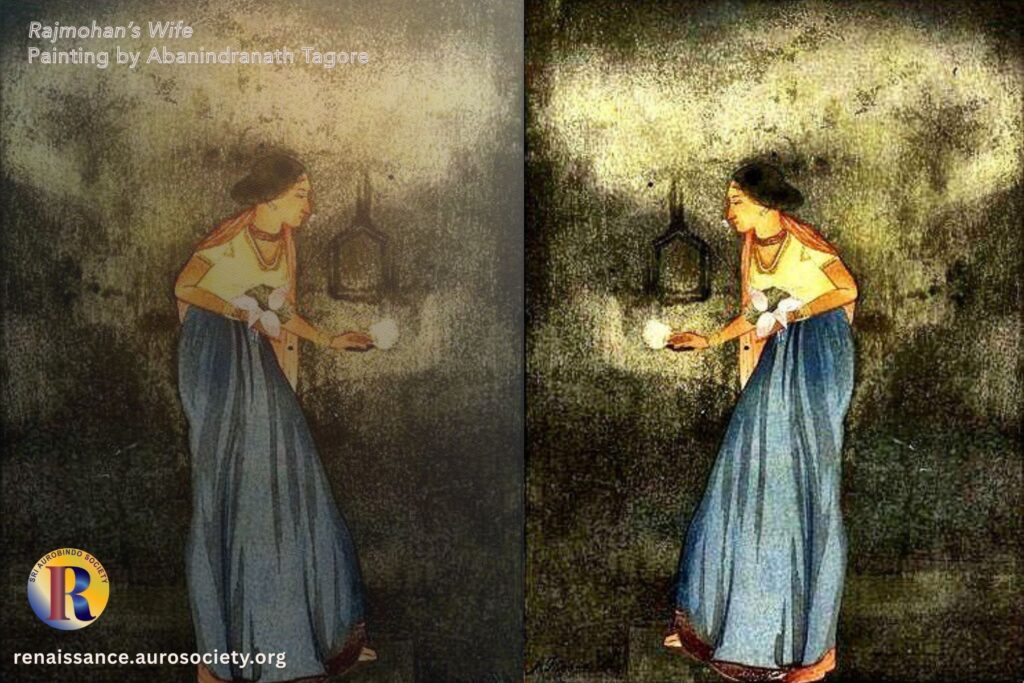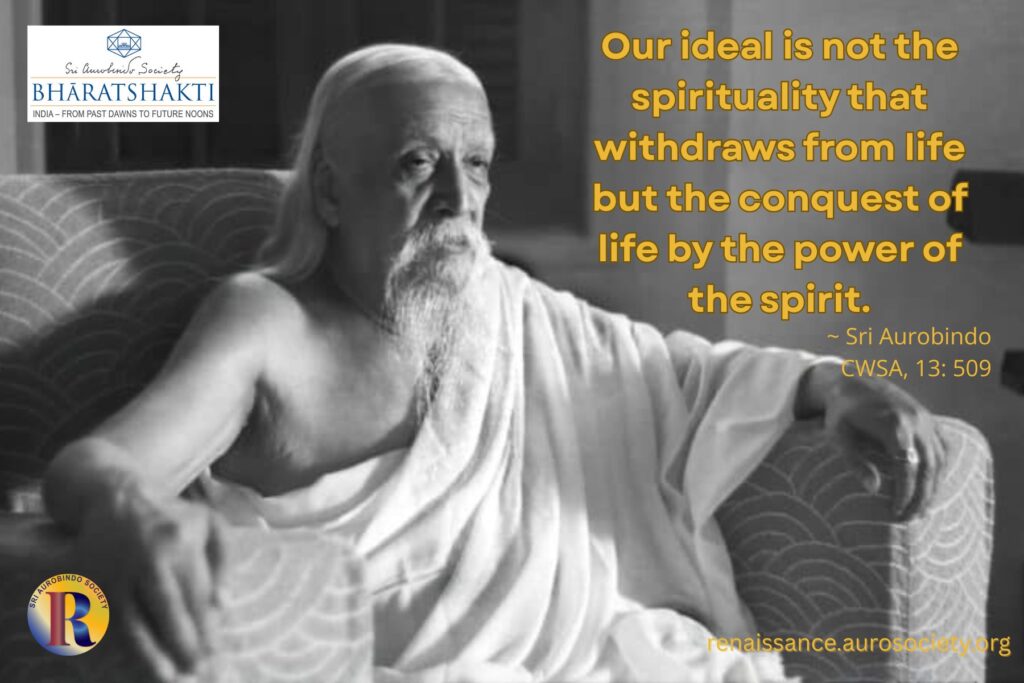Volume I, Issue 2
Author: Beloo Mehra
Continued from Part 1
BM: Let’s move on to something I found very interesting and important in your book, which is ‘love’. And here I am speaking of ‘love’ as in romantic love, particularly focusing on the way you deal with it in your book. I feel compelled to bring it up as I consider some of the concerns many Indians have about the pop-cultural influences like Bollywood, Hollywood or MTV culture etc on the minds and beliefs of the present-day Indian youth.
In your book, I believe it is in the chapter where you speak of your relation with Abdullah, you speak of the difference between ‘falling in love’ and ‘in love’. I think what you also do so beautifully and so gently in the context of this discussion is bring out the deeper difference between a more superficial view of love and a deeper, spiritual view of love. What made you write about this topic and explore it in the way you have done in the book – talking about personal experiences but at the same time making a much bigger, deeper point about love?
MW: Yes, you see when we are young and we fall in love with somebody we think it is for ever, that love is eternal. But then something happens and you fall out of love also, so what is the eternal about this love? Eternal love is only love for the Divine, of the divine, that is what I feel. I wanted to share my journey and my experience with this. We all go through this, no?
So, what is important is to communicate this idea to the young people. It is not so much that we need to preach to them about this thing, but simply sharing our own growing understanding of it can help, no? This attraction between two people is always going to be there, especially when we are young. This happened to me also, and when I came to India, I was still a young woman. So, it happened when I met this person…that is fine.
But what was different this time was that this person was on a deep spiritual quest, he was doing sadhana, he helped me see that true love is not possible between two people. This is what made the difference, I wanted to know if this is not true love, then what is it. He said point blank – true love is not possible between two human beings…true love is only the love of the Supreme, of God, of Divine Being…whatever we may call it. So, I wanted to know more about that, experience that…. this, I felt, must be communicated to the readers.
You know, I remember that even before I came to India, when I was still in the university in Germany I had once written in one of my dairies something like – True love is love of the God… something to that extent. This is surprising because in those days in the university, in my generation, we would not talk of God or anything like that.
But somehow, I had written that, perhaps there was some insight, some opening that was already there, some idea that true love I can get only from God. But then when I came to India, I began to fully see how that is part of the great spiritual wisdom of Indian tradition.
I mean, it didn’t happen just like that, it was a slow learning….and it makes sense you know. When everything is part of the One all-encompassing Consciousness, everything IS rather One Consciousness, one Supreme Being that is part of everything, that is in everyone, how can I pick out and separate some particular part of it and direct this feeling of love toward that one separate part removed from everything else and feel that it is true, complete love….it is not possible, I mean, it doesn’t make philosophical sense when we see it in this broader and deeper sort of way, no?
So, then I started wondering – how can I truly broaden myself to see that One Presence, the one truly Living Thing that is in all of us…. that’s how it began. It helped to see things differently. That loving being, that supreme being is within each one of us, and we have to find that love within us, and it is love for that divine supreme being….
It helps if we can love a particular form of the Divine, that is beautiful, I mean the feeling of bhakti, this love is absolutely beautiful. And if one is truly sincere, truly seeking, the help will come, the feeling of being loved by the Divine will be there. It is so beautiful.
But then how to communicate this to the youngsters?
Now see, one simple thing that can be done is to ask them to just look around themselves…I mean in this day and age we can see whether people who have been in long-term relationships what is really the nature of the love between them. Is it like the same initial spark they felt for each other? I mean when we are young we all feel that it is so easy to fall in love….we are easily attracted…oh, that person is so beautiful and all that….
It was very easy for me also to fall in love in my younger days, but then you also find that it is just as easy to fall out of love…just like that. So, I was wondering how is that possible?
I was reflecting on that, very sincerely, so I came to the conclusion that no, I have to find that true feeling of love within me, that loving presence within me, and only then I can be with someone in a meaningful way, not in a needy sort of way, you know. Because when you are with someone in a needy way, the relationship will eventually fail at some point.
And I will tell you something else. I met this person in Kerala, who was a sanyasi, not really a sanyasi but a sadhu type of person. So one day he told me that he has told his parents that he would like to get married, and that his parents should find a bride for him. He said it didn’t matter who his parents would choose because he wished to get married to experience the grhashta mode of life, as a way to experience a different stage of life, a different path….all this modern idea of choosing this or that type of life partner is not really the point here, you know.
It is a totally different way to understand this whole thing about love and marriage, no? This is a much deeper way of understanding man-woman relationship and life.
BM: Yes, absolutely. And in a way you are really pointing again to the Indian wisdom… particularly in this case concerning the way individual and societal life is organised as per the varnashrama system, and wherein each stage of life, each ashrama becoming an appropriate path to pursue dharma, and for the individual to grow through the practice of dharma in that stage of life.
MW: And that is a totally different way to understand how marriage, love, happiness etc play a role in our lives. Basically, we have to find that happiness within us, only then we can be happy with someone else, no? This is what we need to tell our youngsters. Finding happiness through another person is not going to work out. And that’s why so many relationships fail, you see that every day. Finding love in oneself is the first thing.
BM: It makes perfect sense. And you know, listening to you what I am thinking right now is that in place of all this ‘sex education’ etc what our younger generations really need is a ‘love education’ – something that prepares you for this part of life. So much unnecessary pain, so much heartache can be avoided if younger people are better equipped to handle this aspect of life.
If they are somehow more in touch with this deeper view of love and relationship from a spiritual or at least a deeper psychological view. It also makes them aware of the limitations of the very nature of human love, the play of human ego in this whole thing….
MW: Yes, it would be absolutely wonderful.

BM: Ok, so let me now move to on the other ‘love’ that is so beautifully expressed throughout your book – the love for the nation, love for Mother India in this case. I personally think that if we don’t really love our motherland, if we don’t really have within us this feeling of deep love for our Mother India, we can’t really offer selflessly any of our capabilities, talents, works, anything for the progress or upliftment of our country.
At the same time, pretty much everything that our young generations are exposed to – popular culture, education, etc – nothing really promotes or facilitates this feeling of love for India, love for their motherland. And when I say ‘love’ for India, I am obviously not speaking of love in any narrow, close-minded, chauvinistic sense, it has to be a very grounded sort of love, love that is rooted in a real, good knowledge about what Indian culture and civilisation have always stood for, if I may say so.
Anything you would like to say here, about your love for India, and also in terms of how this feeling of love for Mother India can be facilitated?
MW: Personally, for me, I don’t know how it happened. I just knew that I had to stay here longer, there was such a big treasure here, such rich knowledge. You know, I once had this dream in which I saw the map of India. And I remember the feeling I had in the dream on seeing that image – it was as if my heart expanded. It was beautiful, a very good feeling, I remember. And even in my dream I could feel how beautiful that sense of expansion of my heart felt. So, maybe this feeling of love for Mother India came very naturally for me.
But I don’t know how it can be inculcated in others…it has to be sort of a personal thing, no? At the same time, I feel that Indians have so much to be proud of, I mean in terms of what Indian civilisation and culture are all about, what Indian culture has given to the world.
BM: Do you think Indians sort of take India for granted?
MW: I think most Indians don’t know much about India, and maybe that’s why they don’t really care. Knowledge and love must go together, no?
BM: Yes, sort of like bhakti and jñāna….
MW: Yes, exactly that. And you see, in the West there is a great interest in the knowledge that India has produced. There are professors in universities in the West studying Indian scriptures for all kinds of scientific and mathematical knowledge. And here in India we don’t see much interest in that kind of study, ordinary Indians – most of them don’t really know or care to know what their scriptures are about, what kind of knowledge treasures they are.
But it is not only this deeper knowledge, even in some very practical kinds of knowledge India always had the wisdom.
For example, you now see this craze in the West about Turmeric Latte…. (laughter)…. It is haldi doodh, right? And Indians have been using it for such a long time, for ever, knowing fully well how good haldi is for so many illnesses and problems, and the combination of haldi and doodh…. right. It is really strange in a way, when you think about it, no? I don’t know how to stop this kind of thing. But I feel as a westerner, I should warn you from westerners, no? Even if it goes against me….
BM: But you aren’t that kind of a westerner, you are an Indian soul….
MW: Yes, but still I would rather be looked at strangely by some Indians, those who don’t know me, than you Indians being gullible to all sorts of things that happen out there. I’ll share an experience with you. There was this conference on yoga in Baba Ramdev’s Patanjali Ashram in 2011. And I was there, writing about it for a German magazine.
There was one person from America, one of the founders of this Yoga Association there which certifies yoga teachers, and they wanted or perhaps already had a member who was Indian. And this person said at the conference that she was so happy to be in India, India is the fountain-head of all this yogic knowledge, and how wonderful India is and all that.
So afterwards, I had a chance to meet with her, and I told her how nice it was to hear her say that India is the source of all yogic knowledge, and all that. And she said to me something like – but we actually resist saying all that in our programmes, in our yoga teacher trainings etc.
So, you see, she had no problem speaking about the connection between yoga and India to an audience of about 2000 Indians because this helped her gain their approval, you see what I am saying. But to her own people when she goes back to her own work in yoga, as a yoga teacher or whatever, she can’t say this, or she chooses not to say like that. So, you see the problem here, no? I don’t know how to counter such a thing….
BM: Hmm…this is really interesting and insightful in a way. I suppose the best thing we Indians can do is become aware of such things, educate ourselves and really develop this critical ability to see carefully and think deeply….
MW: Yeah, that is very important. You can’t be naïve in today’s time….



